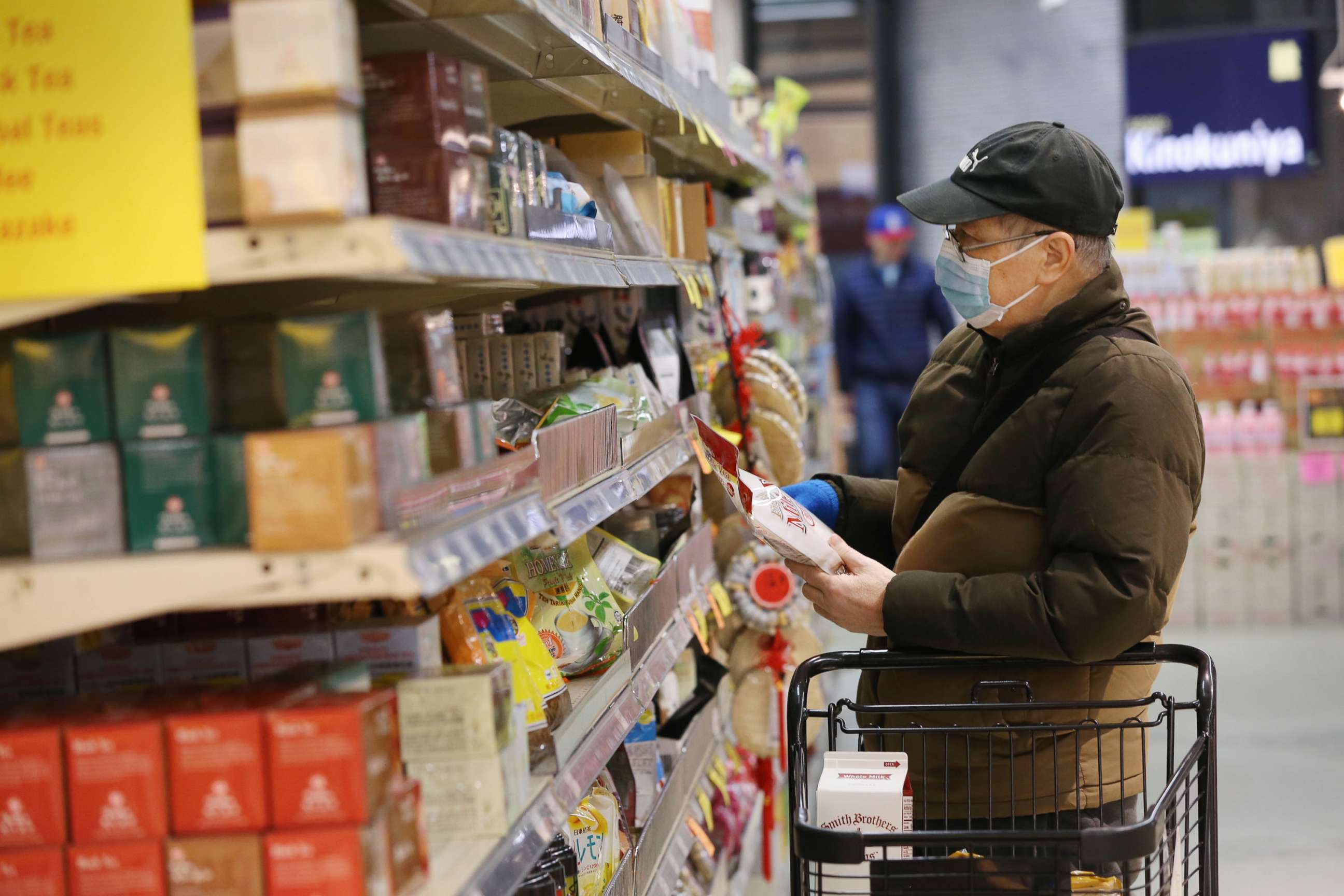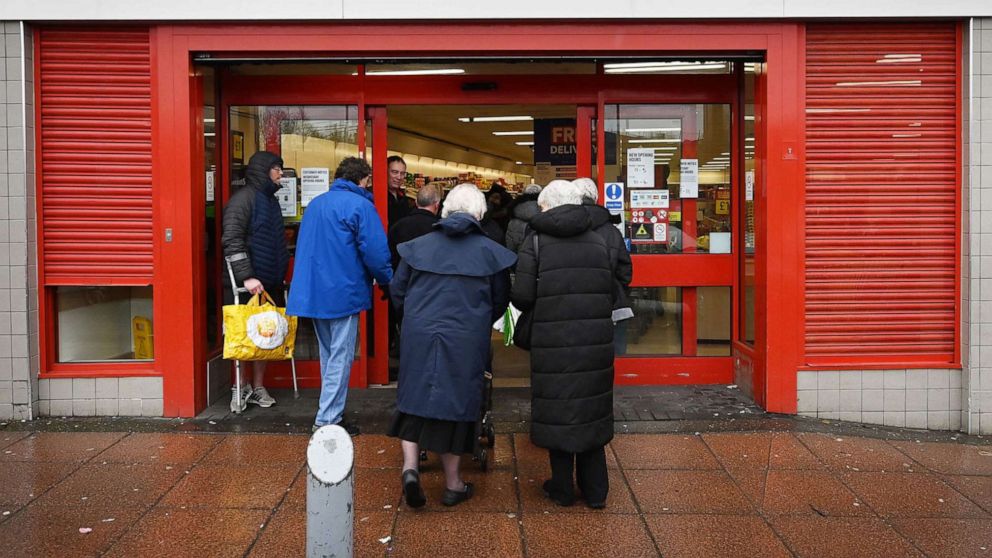Stores create 'elderly-only' hours as coronavirus spreads in the US
Whole Foods, Target and more are looking out for at-risk customers.
As Americans self-isolate and follow health officials' guidelines to stay away from large crowds amid the continued coronavirus emergency, many grocery stores have adjusted to make sure elderly and immunocompromised patrons can shop safely during a designated time in an attempt to mitigate their risk of exposure to the virus.
From national chains to smaller retailers, companies have taken additional precautions to ensure the safety of their potentially vulnerable customers.

Check out the list of stores below and be sure to call or check store hours online for adjusted hours at specific locations.
Target
The company announced reduced store hours and said it will "reserve the first hour of shopping each Wednesday to support vulnerable guests, including the elderly and those with underlying health concerns."
Whole Foods Market
The Austin-based national grocery chain announced that starting today, its U.S. and Canada stores "will service customers who are 60 and older one hour before opening to the public."
Starting on Thursday, March 19, all Whole Foods Market stores in the U.K. will service customers who are 70 and older one hour before opening to the public.
Stop and Shop
The grocery store announced Monday that "people ages 60 and up can use a designated entrance, which will be marked at their local store, from 6:00am-7:30am."
"Although we will not be requesting ID for entry, we ask that you please respect the purpose of the early opening – and do the right thing for your neighbors," Stop and Shop said in a statement. "Store associates do reserve the right to ask customers to leave if they are not a member of this age group."
Fairway
Starting March 18 until further notice, from 8 a.m. to 9 a.m., Fairway will open to those 65 and older, those with increased susceptibility to serious illness, and expecting mothers, the company said in a press release.
Food Town
Food Town announced it would also adjust its hours as the country faces COVID-19. "To help support the shopping needs of the elderly in our community, effective March 17, 2020, we will open our doors from 7 – 8 a.m. to allow those ages 65 and older to shop in a less crowded environment. Access to the store at this time will require a government-issued state ID or Texas driver's license," the announcement read.
The idea has caught on in other countries as well with supermarket chain Wooworths in Australia implementing the tactic for its customers.

DeCicco & Sons
The small Northeastern supermarket chain said it will "have special shopping times every morning from 8:00 AM to 8:30 AM reserved for our senior (65+) customers and immunocompromised families who must shop in store."
Ultimately, the store highly recommends ordering online or having someone shop for them, when possible.
In addition to store hours, many grocers are reminding customers to take advantage of app-based purchasing to lower physical contact and have urged the use of online and delivery orders.
Dr. Delaram J. Taghipour, a resident in the ABC News medical unit, highlighted the importance of the social distancing practice for this age group.
"We believe that allowing the elderly and those who are immunocompromised to access grocery stores away from the worried well gives them a chance to adhere to public social distancing to optimally protect themselves," Taghipour said.
Additionally, Taghipour said that with stores with crowds "include thousands if not millions of asymptomatic or mild symptom having COVID-19 carriers."
"While they may not be intending to spread the virus, they likely are, and the elderly and immunocompromised are the most vulnerable," Taghipour explained. "The elderly may need more time to get around -- and most importantly have been shown to get more severe disease and be at higher risk for death."




